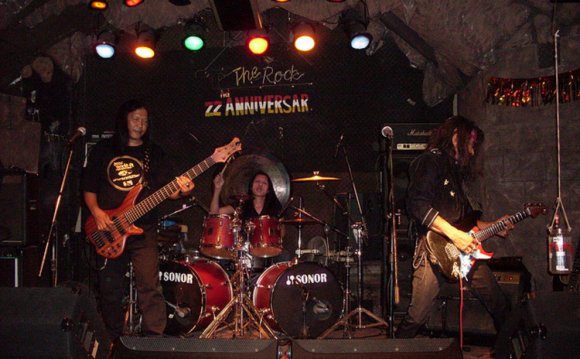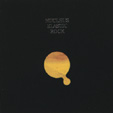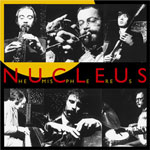
 Ask the question, "who was simply initial fusion singer?" while're very likely to start a hot debate. While populists always claim Miles Davis and seminal tracks including In a Silent means and especially Bitches Brew due to the fact first salvos in a genre that in the end spawned teams including Chick Corea's Return to Forever, Wayne smaller, Joe Zawinul and Miroslav Vitous' at first more freely-conceived Weather Report and, definitely, the incendiary Mahavishnu Orchestra, fronted by electric guitar legend John McLaughlin, the truth is that, like most change in music, it originated in some guidelines at a time. A specific artist may introduce the record that defines a genre, but the truth is that for every single landmark recording there are dozens of others that mine the same territory but never ever receive their appropriate due.
Ask the question, "who was simply initial fusion singer?" while're very likely to start a hot debate. While populists always claim Miles Davis and seminal tracks including In a Silent means and especially Bitches Brew due to the fact first salvos in a genre that in the end spawned teams including Chick Corea's Return to Forever, Wayne smaller, Joe Zawinul and Miroslav Vitous' at first more freely-conceived Weather Report and, definitely, the incendiary Mahavishnu Orchestra, fronted by electric guitar legend John McLaughlin, the truth is that, like most change in music, it originated in some guidelines at a time. A specific artist may introduce the record that defines a genre, but the truth is that for every single landmark recording there are dozens of others that mine the same territory but never ever receive their appropriate due.
Within the arena of jazz/rock fusion, clearly pianist Mike Nock and 4th Method were early progenitors, with records including The sunlight and the Moon attended Together ('69) and Werewolf ('70). And vibraphonist Mike Manieri dabbled with rock noises and rhythms on Journey Through an Electric Tube ('68) and the big band effort White Elephant ('69). But these efforts all reflected a more American method of fusing stone rhythms and textures with jazz tonalities. Just what of places further abroad?
In The united kingdomt there have been several groups who were blending stone sonorities with a more loose improvisational strategy. Smooth Machine introduced one of their particular important records, Third, in '70, an album that even today is considered in the same breathing as Bitches Brew for its sheer audacity and forward-thinking strategy. And Dave Stewart's Egg, while owing much towards the classical tradition, was still a harbinger of even more jazzy what to come with groups including Hatfield additionally the North and National Health. But amidst all this work flurry of task arose a band whom, while the personnel would change drastically over the years, represented the sight of one musician: trumpeter Ian Carr, who would, after a lengthy run utilizing the Don Rendell/Ian Carr musical organization of this '60s, look for methods to mesh his or her own self-taught conventional back ground in improvisational jazz because of the even more edgy rhythms and noises of stone. The effect, Nucleus, is a band that, critically acclaimed with its time, was virtually forgotten through the ensuing many years, but has return in to the limelight because of a series of reissues by Britain's BGO reports, and undoubtedly the release of real time recordings by Hux and Cuneiform.
 Chapter Index:
Chapter Index:
Elastic Rock
Whenever Carr introduced together keyboardist/oboist Karl Jenkins, saxophonist/flautist Brian Smith, guitarist Chris Spedding, bassist Jeff Clyne and drummer John Marshall, established artists every, to capture Nucleus' very first record, Elastic Rock, one doubts he may have envisioned the effect the album would have, not just regarding the British scene, but from the international stage as well. Various quick months after tracking their first record they won the utmost effective award at Montreux Jazz Festival and found by themselves playing during the Village Gate in ny, to an audience who had been wondering just what it was they certainly were hearing. Incase it were not for a manager's greediness, Elastic Rock might have seen Stateside launch, and broader reputation for fusion might have been coloured yet another way. But unfortunately that don't occur and Nucleus, after a short flurry of activity regarding North American scene, fundamentally gone back to The united kingdomt in which they maintained an effective job there and on the European continent, for the next a decade approximately.
Through the orifice rush of Jenkins' "1916, " having its anthemic horn-line supported by Marshall's flurry of task, it really is obvious that one thing new is going on. The record album all together, while incorporating certain components of stone rhythms, is a far more calm event than that which was in the future later. If an assessment must be made, then Miles' In a Silent means is a precedent, although Carr promises to not have heard it at the time of recording, which simply continues to reinforce the reality that improvements in music originate from many resources and often at the same time. Like In a Silent means, Carr chose to build side-long continuous rooms of songs, even though there is less dependence on hypnotic groove plus on composed melodies, mostly through the pen of Jenkins, who does write many Nucleus' first two files. Even though you can find similarities between your trancelike groove of "Torrid area" and "Shhh/Peaceful, " you will find variations aswell. While "Shhh/Peaceful" would rest on a certain ambience for pretty much a complete side, "Torrid Zone" would lead into "Stonescape, " a far more standard ballad, albeit played with a particular elasticity with time by Marshall. Segueing into "Earth Mother, " Jenkins delivers an oboe solamente over a bunch improvisation that, as rugged since it gets, remains reasonably subdued in contrast to their particular next album, we are going to explore It later on, that has been recorded eight months later in September '70.
Profiles
Find out more articles HemispheresHux Reports
2006
UK Tour '76
Major League Productions
INTERESTING VIDEO











